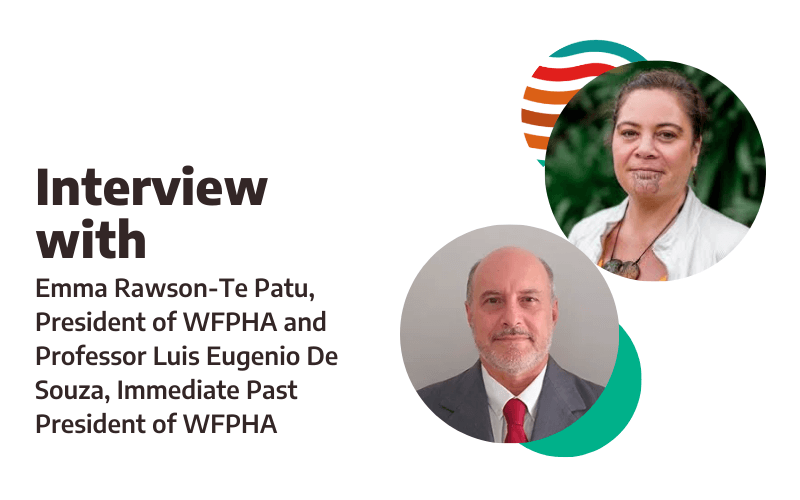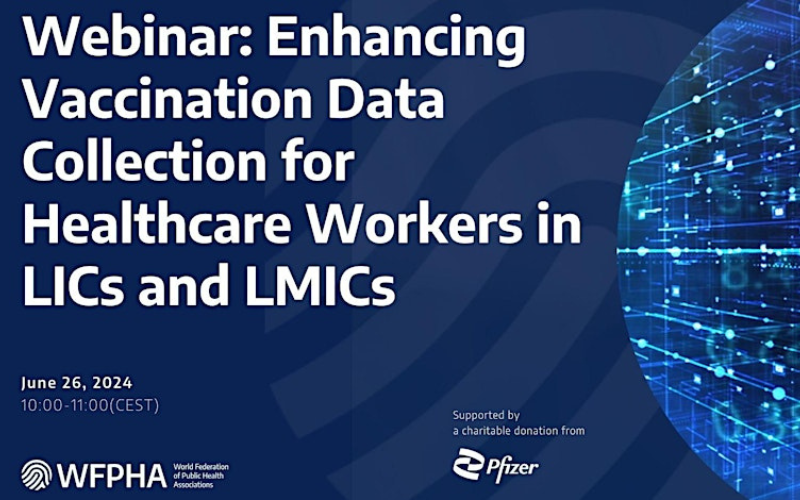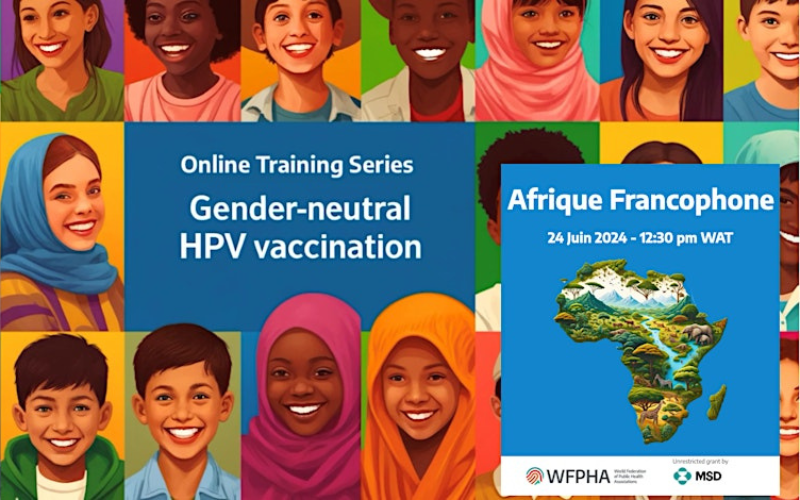
Interview with WFPHA Leaders: Shaping the Future of Global Public Health

Interview with WFPHA Leaders: Shaping the Future of Global Public Health
News
Jul 8, 2024
Executive Director of WFPHA, Bettina Borisch, sets the scene in an intimate interview* with Immediate Past President Prof. Luis Eugenio De Souza from Brazil and current President of the World Federation of Public Health Associations (WFPHA) Emma Rawson-Te Patu from New Zealand to discuss how our leaders shape the future of global public health.
Reflecting on Progress: A Conversation with Luis Eugenio De Souza
Bettina: Luis, you have been president for two years and are now the immediate past president. What has your view been over the last two years?
Luis: The WFPHA has made significant strides over the past fifty years. In the last two years, we have introduced a pivotal change by integrating the promotion of peace and sustainable development into our core mission. This complements our ongoing efforts to promote health, prevent disease, and enhance well-being. We have set seven goals to guide these initiatives, marking a major achievement. I am proud to have coordinated this shift with our Working Chairs, Governing Council, and Advisory Board alongside our global partners.
Looking Forward: Emma Rawson Te-Patu’s Vision for the Future
Bettina: Emma, you inaugurated your presidency with a beautiful ceremony reflecting your heritage. How do you see the next two years? What are your plans for the WFPHA?
Emma: Our inaugural ceremony was indeed special, showcasing the cultural practices of New Zealand. As an Indigenous woman, I bring a unique perspective to this role. My focus will be on improving Indigenous health equity and outcomes. Despite numbering over 400 million, Indigenous people worldwide bear a disproportionate burden of illness and disease. The WFPHA, with its extensive network and influence, including partnerships with organizations like the WHO, is well-positioned to advocate for the health of indigenous communities. Promoting peace as a prerequisite for health and sustainable development remains a priority.
Bridging Local and Global Health: Insights from Luis and Emma
Bettina: Luis, how have you seen your work as president in balancing local and global perspectives over the past two years
Luis: Organizing the World Health Congress 2026 in Cape Town is our biggest challenge, serving as a platform to merge regional, local, and global perspectives. This event will bring together diverse health scenarios from South America, New Zealand, Australia, Asia, Europe, and Africa. Our main goal is to identify common principles that unite health workers globally and find actionable solutions to ensure the highest possible health standards for everyone.
Bettina: Emma, what local insights from New Zealand can be applied to the global stage?
Emma: New Zealand offers a unique context, allowing us to effectively control our public health and environment. This gives us a distinctive voice in the global arena, sharing successful practices while supporting countries with fewer resources. The public health community must remain humble, recognize our strengths, and lead by example. By understanding our place, we can better support others and achieve improved health outcomes worldwide.
A Message of Solidarity and Bravery
Bettina: As we progress through different presidencies, what is your message to our audience?
Luis: The WFPHA represents our community of over five million people, and we can drive significant change if we unite with one voice. Solidarity is key to our success.
Emma: My message centers on bravery. Public health faces many challenges, especially regarding resources. We can maximize our impact by working authentically and collaboratively and supporting each other’s strengths. Bravery means recognizing when to step aside and let others lead, ensuring that our collective efforts yield the best possible outcomes.
Conclusion
This dialogue underscores the shared vision and dedication of the WFPHA leaders. Prof. Luis Eugenio De Souza and Emma Rawson-Te. Patu bring diverse perspectives but are united in their commitment to advancing global public health. Their insights highlight the importance of integrating local experiences with global strategies, promoting equity, and fostering solidarity within the public health community. As we look to the future, their leadership will continue to shape a healthier world for all.
*Please note that this interview has been edited for clarity and brevity.






Recent Comments